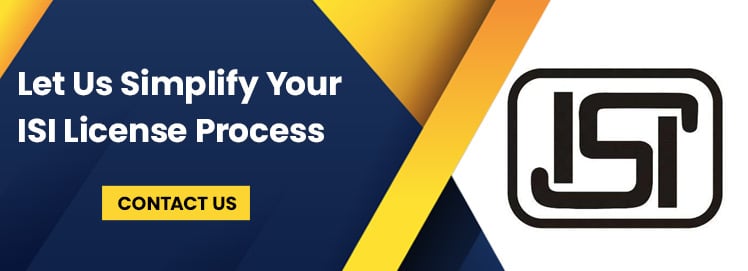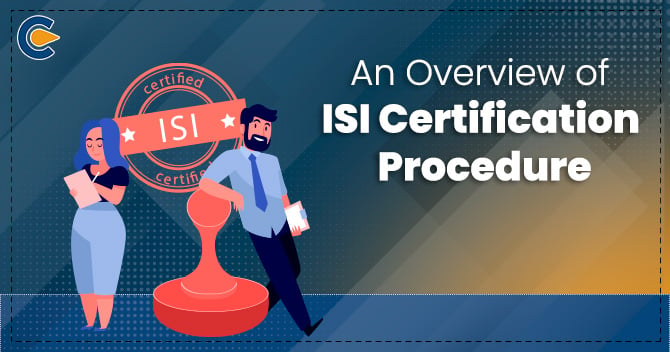Plain Copier Paper is offset uncoated paper used in inkjet or laser printers. It is used for everyday printing & copying needs; when compared to printing papers, copier paper is cheaper & lightweight. In this competitive world, it is not so easy to survive in the market without having a standard quality & certified product. So it is necessary to get BIS License to sell products in the Indian market. To get BIS ISI Certification for Plain Copier Paper, the Manufacturer must make sure that their product must follow the specified Indian Standards. Plain Copier Paper is covered under IS 14490:2018 and this Standard specifies the sampling, requirements, and testing methods for Plain Copier Paper for use on Plain Paper Copying Machines. Scroll down to learn more about BIS ISI Certification for Plain Copier Paper.
What is the Importance of BIS Certification in India?
BIS Certificate plays an essential role in the Indian Market. The importance of this Certificate can’t be ignored by the owner of the business. Having a BIS Certificate in India for any product or item means that the product has gone through various tests and has been certified by the BIS (Bureau of Indian Standard) that such product is safe and no harmful substances have been found in the product.
Customers in India trust BIS-certified products because its 1st priority is to keep customers’ health & safe and protect them from hazardous products and act as a safeguard for the customers. Also, customers rely more on those products or items with BIS Marks. BIS Certification aids all manufacturers in making a profitable business in the market. It also gives an advantage over those manufacturers that don’t have a BIS Certification for their product or item.
Who can apply for BIS ISI Certification for Plain Copier Paper in India?
All the manufacturers from India (Domestic Manufacturers) as well as Foreign manufacturers can apply for BIS ISI Certification for Plain Copier Paper in India.
Requirements for ECO MARK
The product (Plain Copier Paper) must meet the performance & quality requirements mentioned in the Standard. When applying for an ECO MARK, the Manufacturer must provide an Environmental Consent Clearance from the relevant SPCB (State Pollution Control Board) to BIS.
Depending on the raw materials used in the manufacturing of this product, the material shall be of 2 different types:
- Type A: The material should be produced from pulp that contains not less than 60% by mass of pulp made from non-bamboo, non-recycled materials & non-softwood materials.
- Type-B: The material must be manufactured from pulp made completely from waste paper.
Testing, Packing & Marking of the Plain Copier Paper
- Packing: Each ream of the paper shall be wrapped by means of wax coating to prevent moisture absorption. Then, it shall be packed in 4-ply corrugated cartons to make sure that the paper is not damaged or destroyed due to handling & transportation or shall be packed as agreed to between the supplier & the purchaser. For ECO MARK[1], the product or item shall be packed in such packages, which shall be reusable or recyclable or biodegradable.
- Marking: The package of the product shall be marked with the following details:
- Size & description of the paper;
- Quantity;
- Thickness in microns & substance in g/m2;
- Lot. No. and Month & Year of manufacture;
- Indication of the source of manufacture.
The package shall be marked with details as specified in the Standard. Each reel/ream shall also be marked with ISI Mark. Packaging & Marking shall be done by the requirements of IS 14490:2018. The Manufacturer must get a BIS License from the BIS to use an ISI Mark. The BIS issues a License based on a successful assessment of quality control, production process, manufacturing infrastructure, testing capabilities & testing.
- Testing: The following tests shall be done:
- Thickness;
- Sizes;
- Capacity;
- Brightness;
- Smoothness;
- Wax pick.
A lab shall be adequately maintained, in which the various tests shall be carried out as per the methods specified in the Standard.
Documents Required for BIS ISI Certification for Plain Copier Paper
The following are the documents required for BIS ISI Certification for Plain Copier Paper:
- Establishment proof such as Certificate of Incorporation, Partnership Deed, GST Certificate, etc.,;
- List of test equipment;
- A layout plan indicates the map location of considerable manufacturing equipment or lab;
- Details on manufacturing machinery;
- A list includes information on raw materials used & a replica of test certificates;
- The in-house testing report of product samples;
- Flow chart process comprising of all the manufacturing, details regarding in-process control of each stage, including outsourced stages;
- List of quality testing individuals & copies of Qualification Certificates of QCP (Quality Control Personnel);
- Trademark Registration Certificate;
- Factory location plan from nearby airport or landmark or railway station & guidance regarding how to reach the BIS Office.
Procedure for BIS ISI Certification for Plain Copier Paper
Following is the step-by-step procedure for BIS ISI Certification for Plain Copier Paper:
Step 1: Product Testing: The product, i.e., Plain Copier Paper for which BIS ISI Certificate is required, should be tested in a BIS-certified lab as per the Standards. The request for product testing must be generated by the MANAK portal to any BIS-recognised lab. The lab tests will be performed on the basis of testing parameters cited under the Indian Standards and generated in the test report. The same reports are uploaded by the BIS-recognised lab on the online portal, using which the Manufacturer files the application.
Step 2: Application Filing: Once the BIS-recognised lab submits the test reports, then the Manufacturer can file the application as per the test reports. It is mandatory to upload all the important documents along with the information asked in the application. Once the Manufacturer completes the application can & uploads all the documents, then the Manufacturer is required to pay the fees to the Department.
Step 3: Inspection: After submitting the documents & application, the BIS Officials will examine all the details, documents & applications submitted by the Manufacturer to the Bureau of Indian Standards. The authenticity of the test report is checked; if the Department want any additional documents, then the same should be provided before the allotted inspection dates. Once all the documents & details satisfy the inspection officer, then a Factory Inspection will be conducted by the Inspection Officer where all the documents are examined in hardcopy and the testing & manufacturing procedure is verified.
Step 4: Issuance of BIS License: After the Factory Inspection, the officer submits the inspection/examination report to the Certification Officer will all the remarks. Then, they will issue the BIS License to the Manufacturer.
Penalty for Misusing the ISI Mark
The Bureau of Indian Standards proposed severe penalties for misusing ISI Mark, like product duplicity and logo imitation or copy. As per the norms, anyone found guilty of such misconduct will have to pay Rs. 50,000 & imprisonment for 1 year. The Bureau of Indian Standards has constituted an enforcement department to monitor the illegal uses of ISI Mark.
Conclusion
It is mandatory for the manufacturers of products to obtain BIS ISI Certification for Plain Copier Paper if the product is covered under the BIS Conformity Assessment Scheme. In case of any violation of License conditions, the License may be cancelled by the BIS as per the Provision of Regulation 11 of BIS (Conformity Assessment) Regulations, 2018.
Read Our Article:What are the Documents Required for ISI Certification?













